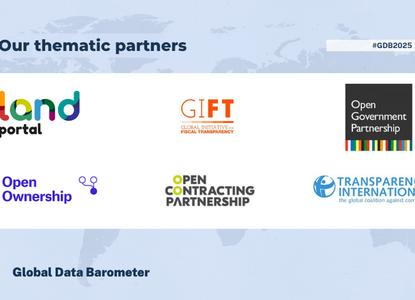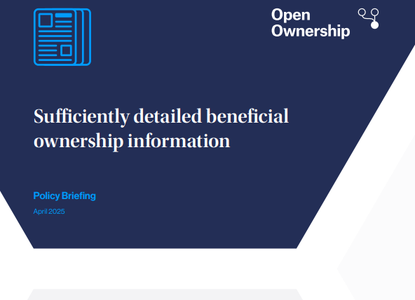Coverage of corporate vehicles in beneficial ownership disclosure regimes
Help us understand how you are making use of resources from the Open Ownership website by filling out this short survey
Publication type
Briefing
Publication
Sections
Implementation,
Research
Open Ownership Principles
Coverage
Summary
In any beneficial ownership (BO) disclosure regime, its scope – or coverage – plays a central role in its potential impact. This policy briefing explains that to generate actionable and usable data across the widest set of policy aims, BO disclosure requirements should apply to all corporate vehicles, whilst allowing for reasonable and narrowly applied exemptions. Using examples from jurisdictions around the world, it details the considerations for policymakers (and others with responsibilities for setting out the scope of coverage in their jurisdiction) for how to effectively do so in legal and data systems.
Key points
- When determining which corporate vehicles should be required to disclose beneficial ownership information, jurisdictions should assess which corporate vehicles are relevant to policy aims.
- To meet the widest set of policy aims, BO disclosure requirements should cover all corporate vehicles.
- To ensure coverage is proportionate to meeting policy aims, policymakers can create limited, reasonable and narrowly tailored exemptions for certain categories of relevant corporate vehicles, based on specific criteria.
- The scope of coverage should be set out in law using primary and secondary legislation, requiring all relevant corporate vehicles to disclose BO information.
- Legislation should also detail exemptions, making them explicit and specific whilst allowing for ongoing reassessment.
- The data system should be able to capture sufficiently detailed information for all corporate vehicles, including information about indirect ownership and control, and make it accessible through a central platform.
- Exempt corporate vehicles should be required to make regular declarations, identifying themselves and referring to a source of information on ownership and control.
- It is important to ensure that the legal definition of beneficial ownership includes all relevant forms of ownership and control.
- The creation of clear guidance can support compliance.



